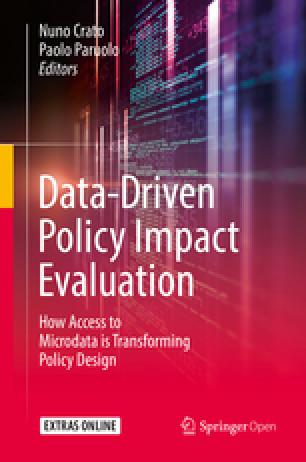The Competence Centre on Microeconomic Evaluation (CC-ME) supports impact evaluation of EU policies by using existing micro-data, which allows to analyse the impact of EU policies on individuals and in small geographical areas in different fields including social, industrial and environmental policies.
The Centre serves as a focal point of reference for support across a wide range of areas of EU policies, by providing advice on data collection and evaluation design, capacity building for the application of counterfactual methods, microeconometric analysis and counterfactual impact evaluation.
It also provides reference to recent evaluations in selected areas.
Quantitative evaluation of EU policies across a variety of socio-economic outcomes could greatly contribute to the Better Regulation Agenda, the European Semester and the targeting of the European Structural Investment Funds.
The following videos briefly describes some of the main Counterfactual Impact Evaluation methods that can be used to establish effectiveness of EU policies or regulations.
|
1. Randomized controls trials and matching methods |
|
|
|
2. Regression discontinuity design |
|
|
|
3. Difference in difference |
|
|
|
4. Instrumental variables |
|
|
|
5. Finding a control group when everybody is treated. |
|
|
|
What is administrative data? |
|
|
|
Data for Evaluation |
|
|
Data-driven Policy Impact Evaluation |
In the light of better and more detailed administrative databases, this open access book provides statistical tools for evaluating the effects of public policies advocated by governments and public institutions. |
 |
Advanced counterfactual evaluation methods - Guidance document |
The aim of this guidance material is to provide an accessible introduction to advanced counterfactual impact evaluation (CIE) methods. |
 |
| Originally Published | Last Updated | 03 Feb 2020 | 17 Jun 2022 |
| Knowledge service | Metadata | Microeconomic Evaluation |
